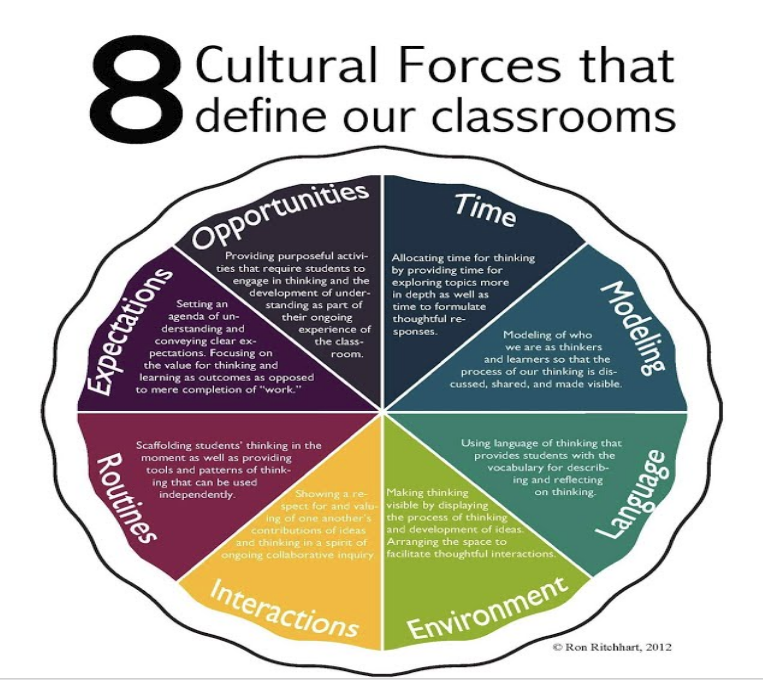There are 8 cultural forces that define our classrooms as well as our schools. These represent the tools or levers teachers and school leaders utilise to transform and shape the culture of their educational context. As Ritchhart highlights in the book Creating Cultures of Thinking (2015) the "creation of any group culture is ongoing and evolving."
"Awareness of the presence of the cultural forces in any group context helps prospective and experienced educators alike take a more active role in shaping culture."
The 8 cultural forces are all intertwined. It does not matter where you begin your focus; you will soon find that focusing on one force, e.g. routines, brings out the other forces, such as opportunities, language, modelling etc.
What we as highly skilled educators need to do is look at how these forces are currently at play within our educational settings. Are there some forces you currently give more weight to? Are there some forces you could work to improve in order to develop a stronger culture of thinking?
What we as highly skilled educators need to do is look at how these forces are currently at play within our educational settings. Are there some forces you currently give more weight to? Are there some forces you could work to improve in order to develop a stronger culture of thinking?
|
Click the buttons below to view more information about each cultural force.
|
Please note that these pages contain a collection of resources and links to activities to support and enhance classroom teaching and learning. The thumbnails and activities are the property of the authors/creators and available due to their generosity in sharing their work. All sources are acknowledged on the ACKNOWLEDGEMENT OF SOURCES page.
This website contains NSW syllabus content prepared by the NSW Education Standards Authority for and on behalf of the State of New South Wales which is protected by Crown copyright. https://www.educationstandards.nsw.edu.au/wps/portal/nesa/home
This work is licensed under a Creative Commons Attribution-NonCommercial-ShareAlike 4.0 International License.
This website contains NSW syllabus content prepared by the NSW Education Standards Authority for and on behalf of the State of New South Wales which is protected by Crown copyright. https://www.educationstandards.nsw.edu.au/wps/portal/nesa/home
This work is licensed under a Creative Commons Attribution-NonCommercial-ShareAlike 4.0 International License.


